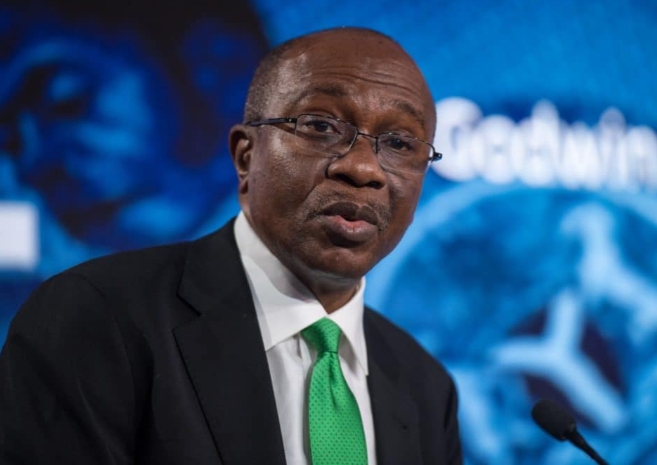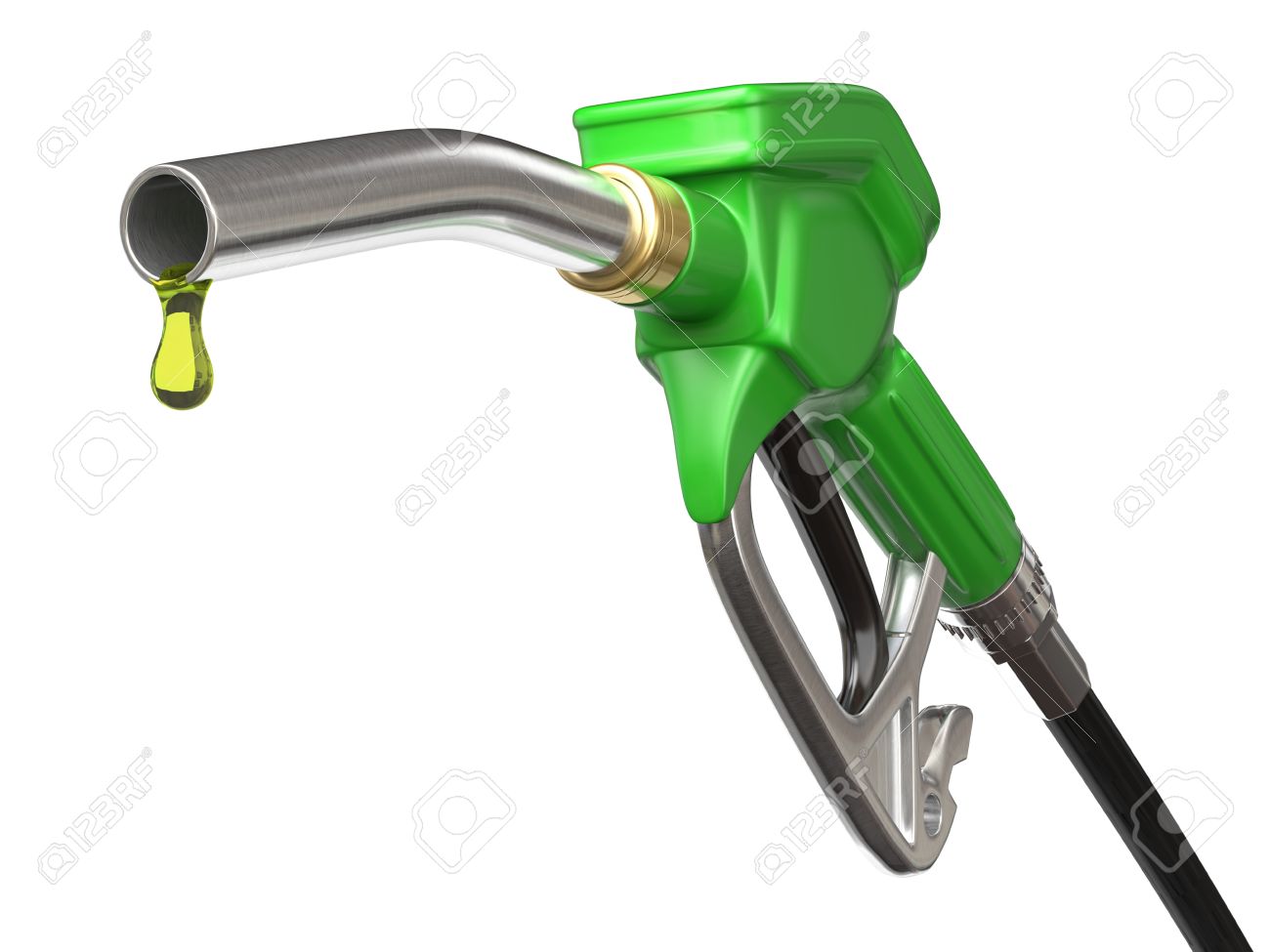Business
Group Backs Calls For Emefiele’e Resignation

The Nigeria Citizens Action Group (NCAG), a coalition of 35 civil society organisations, has supported the call of concerned Nigerians that Godwin Emefiele, Governor of the Central Bank of Nigeria, resigns his position with immediate effect to save the country from total collapse.
Comrade Isah Abubakar, Convener, NCAG, in a joint statement, said, “The Nigeria Citizens Action Group (NCAG), a coalition of Thirty-Five (35) Civil Society Organisations, is constraint to lend its voice with that of numerous other concerned Nigerians that have been calling on Mr Godwin Emefiele, Nigeria’s Central Bank Governor (CBN) to resign with immediate effect to save the country from total collapse, which is imminent.”
The coalition noted that the call became necessary following the extensive review of the tenure of Emefiele as the head of the nation’s apex bank.
The statement explained that it has come to the sad conclusion that Emefiele should humbly step aside and allow a more competent person to step in, to save the country from total collapse.
“We understand that it will be difficult for him and his hangers on to reason with us, but we wish to beg on them to put on their garment of patriotism and save our country,” the statement explained.
The statement noted that it was during the formative stage of the first tenure of Emefiele that monies meant for the procurement of arms to fight Boko Haram terrorists and budding bandits in other parts of the country were converted to campaign funds and some given to “prayer warriors”, adding that many prominent Nigerians are facing trials for benefitting from that bazaar and wondered why he is still enjoying total freedom till date
It said that when Adedoyin Salami, a member of the country’s monetary policy in 2017, cautioned the CBN Governor against the excessive funding of the Federal Government which was 20 fold higher than the approved threshold. It added that Emefiele refused to take correction, lamenting that many sound economists described Emefiele’s Monetary Policy as “reckless and illegal” which will set the Nigerian economy for a “Big Fall”.
It noted that the big fall is here as $1 is currently equivalent to over N545.
The group noted that the CBN acted in error and was guided by copy and paste policy when its included foodstuff import prohibition lists despite having the foreknowledge that the country largely depends on subsistence farming which was under serious threat by bandits, terrorists, and farmers/herders crisis in various part of the country.
It said that currently, Nigerians have been thrown into a state of acute hunger, which is contributing to the rising insecurity in the country.
READ ALSO:. Fani-Kayode Explains Why He Joined APC
The group further stressed that the CBN under the watch of its incumbent Governor claimed to have reeled out several interventions running into trillions of Naira whose impact could only be felt on papers not in real life, stressing that many of the failed and corruption challenged programs of the CBN is not limited to Anchor-Borrowers Programme.
The statement noted that recently, the United Arab Emirates government arrested, convicted, and blacklisted some Bureau de Change Operators of Nigerian origin who have been fingered in financing terrorism globally, adding that the monies have been passing through the ineffective eyes of the CBN unnoticed into the hands of terrorists.
It said took the intervention of foreign government to block such a channel, as the CBN under Emefiele is more concerned with frivolities rather than the general well-being of the country.
The coalition, therefore, called on the CBN governor to resign with immediate effect to allow an independent and hitch-free probe of his tenure.
It also called on the Federal Government to delist rice and some food materials from import prohibition items, saying that this would help to reduce the prices of food that is beyond the reach of common Nigerians.
The statement called on the anti-graft agencies to arrest Emefiele with immediate effect to ascertain the level of his involvement in the arms procurement scandal and other programmes that failed under his watch due to growing corruption.
(DAILY POST)
Business
Naira Continues Gain Against US Dollar As Nigeria’s Foreign Reserves Climb To $45.57bn

The Naira appreciated further against the United States Dollar at the official foreign exchange market, beginning the week on a good note.
Central Bank of Nigeria data showed that the Naira strengthened on Monday to N1,429.31 per dollar, up from N1,430.85 exchanged on Friday, 2 January 2026.
This means that the Naira gained N1.56 against the dollar on Monday when compared to N1,430.85 last week Friday.
READ ALSO:Naira Records Significant Appreciation Against US Dollar
At the black market, the Naira dropped by N5 to N1480 per dollar on Monday, down from N1475 traded Friday.
The development comes as the country’s external reserves rose to $45.57 billion as of Friday last week.
Business
NNPCL Reduces Fuel Price Again

The Nigerian National Petroleum Company Limited, NNPCL, has again reduced its premium motor spirit price.
In Abuja, on Monday morning, it was gathered that NNPCL retail outlets have reduced their fuel price to N815 per liter, down from N835.
This means that the NNPCL filling stations cut their price by N20.
The fresh price has been implemented at NNPCL filling stations in Wuse Zone 6 and 4 Abuja, Keffi-Abuja Road, and Kubwa Expressway.
READ ALSO:Fuel Price Cut: NNPCL GCEO Ojulari Reveals Biggest Beneficiaries
An NNPCL filling station attendant, who preferred anonymity, told DAILY POST that the new price was implemented on Sunday evening.
However, the N815 per liter is N79 higher than the N739 per liter sold at Dangote Refinery’s backed MRS filling stations nationwide.
DAILY POST recalls that NNPCL on December 19, 2025, cut its price of petrol by N80 to N835 amid a price war among players in the country’s oil downstream sector triggered by Dangote Refinery’s gantry price reduction to N699 per liter.
Business
NNPCL Announces Restoration Of Escravos-Lagos Pipeline

The Nigerian National Petroleum Company Limited (NNPCL) has announced the complete restoration of the Escravos-Lagos Pipeline System (ELPS) in Warri, Delta State, following the recent explosion on the asset.
The chief corporate communications officer (CCCO) of the nation’s oil company, Andy Odeh, in a statement, said that the pipeline is fully operational, reiterating the company’s resilience and commitment to energy security.
“NNPC Limited is pleased to announce the successful restoration of the Escravos-Lagos Pipeline System (ELPS) in Warri, Delta State.
READ ALSO:Fuel Price Cut: NNPCL GCEO Ojulari Reveals Biggest Beneficiaries
“Following the unexpected explosion on December 10, 2025, we immediately activated our emergency response, deployed coordinated containment measures, and worked tirelessly with multidisciplinary teams to ensure the damaged section was repaired, pressure-tested, and safely recommissioned.
“Today, the pipeline is fully operational, reaffirming our resilience and commitment to energy security. This achievement was made possible through the unwavering support of our host communities, the guidance of regulators, the vigilance of security agencies, and the dedication of our partners and staff.
“Together, we turned a challenging moment into a success story, restoring operations in record time while upholding the highest standards of safety and environmental stewardship.
“As we move forward, NNPC Limited remains steadfast in its pledge to protect our environment, safeguard our communities, and maintain the integrity and reliability of our assets. Thank you for your trust as we continue to power progress for Nigeria and beyond,” the statement read.

 News2 days ago
News2 days agoWhat I Saw After A Lady Undressed Herself — Pastor Adeboye

 Headline2 days ago
Headline2 days agoPROPHECY: Primate Ayodele Reveals Trump’s Plot Against Tinubu

 Metro2 days ago
Metro2 days agoArmed Robbers Shot PoS Operator To Death In Edo

 Politics2 days ago
Politics2 days agoWhy Kano Governor Postponed Formal Defection To APC

 Entertainment2 days ago
Entertainment2 days agoAnthony Joshua Returns To UK In Private Jet

 Metro2 days ago
Metro2 days agoGunmen Demand N200m Ransom For Kidnapped Brothers In Edo

 Metro2 days ago
Metro2 days agoJoint Task Force Kills 23 Bandits Fleeing Kano After Attacks

 Metro22 hours ago
Metro22 hours agoAAU Disowns Students Over Protest

 Metro22 hours ago
Metro22 hours agoEdo: Suspected Kidnappers Kill Victim, Hold On To Elder Brother

 Entertainment2 days ago
Entertainment2 days agoPHOTOS: Anthony Joshua Makes First Social Media Post After Surviving Deadly Car Crash


















